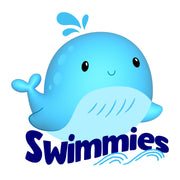Heart Rate Monitor
This comprehensive guide explores the significance of heart rate monitors covering topics such as their fundamentals, benefits, selection criteria, types, applications in health monitoring, and distinctions from pulse monitors. It also emphasizes essential features for choosing the right device. By the end, readers gain valuable insights to ensure the safety and well-being of young swimmers using heart rate monitors.
Make bath time extraordinary with Swimmies' enchanting collections of bath toys! Spark your child's creativity and imagination with our captivating range, designed for endless joy and learning. Elevate their bath experience today – shop Swimmies and transform every splash into a world of magical adventures!
What Is A Heart Rate Monitor?
A heart rate monitor is a device that measures the heartbeat rate of your little ones. It's a useful tool that allows you to keep track of their heart rate during various activities such as swimming, playing, or even while taking a bath.

Ready To Unleash Your Style? Make A Statement With Swimmies Today!At Swimmies, we're all about helping you express your unique style and passion. Here's why you'll love shopping with us:
Immerse yourself in safety, style, and boundless fun with Swimmies' exceptional range of baby water products! Enhance your little one's aquatic adventures with our high-quality essentials. Shop Swimmies now and ensure your baby splashes into happiness and comfort. Let the water adventures begin! |
How Does A Heart Rate Monitor Work?
Heart rate monitors typically use a sensor that is placed on your child's body, such as on their chest or wrist. This sensor detects the electrical signals produced by their heartbeat. It then relays this information to the monitor, which displays the heart rate in real-time. Some monitors even have built-in alarms that alert you if the heart rate goes above or below a certain range.
What Are The Benefits Of A Heart Rate Monitor?
A heart rate monitor offers a valuable tool for parents, enabling them to prioritize safety and health while optimizing their child's training and physical development.
Safety
A heart rate monitor helps you ensure that your baby or toddler is not pushing themselves too hard during activities, reducing the risk of overexertion or exhaustion.
Health Monitoring
By tracking their heart rate, you can gain insights into their cardiovascular health and detect any potential issues at an early stage, allowing for timely medical intervention if necessary.
Training Optimization
If your little ones are into swimming or other sports, a heart rate monitor can help you tailor their training sessions to their individual needs, maximizing their performance and progress.
What Types Of Heart Rate Monitors Are Currently Accessible?
When it comes to heart rate monitors, you'll find a variety of options available. Here are some of the most accessible types:
Chest Strap Heart Rate Monitors
These monitors feature a chest strap and a heart rate sensor, ensuring precise readings. Popular among dedicated athletes and trainers, they offer accurate data to monitor your child's heart rate effectively.
Wrist-based Heart Rate Monitors
Equipped with wristband or watch-like sensors, these monitors offer comfort and convenience for your little ones. Easy to use, they provide real-time heart rate data, ensuring a seamless experience while keeping track of their health and activity levels.
Clip-On Heart Rate Monitors
Easily attachable to your child's clothing, these monitors offer a portable and non-intrusive solution. While they may not be as precise as chest strap or wrist-based options, they still provide a general idea of your child's heart rate, offering convenient insights without discomfort.
How Are Heart Rate Monitors Utilized In Tracking Health Conditions?
Heart rate monitors can be invaluable tools for monitoring and tracking your child's health conditions. Here are some ways they are utilized:
Cardiovascular Conditions
Heart rate monitors enable vigilant monitoring of your child's heart rate, especially if they have existing cardiovascular conditions. Detecting abnormal heart rate patterns early is crucial, aiding in the effective management and treatment of their condition.
Asthma
In children with asthma, heart rate monitors are valuable for tracking heart rate during physical activities. Monitoring heart rate allows you to assess their asthma control and determine if they need a break to prevent potential asthma attacks, ensuring their safety and well-being.
General Fitness Tracking
Heart rate monitors play a key role in monitoring your child's overall fitness levels. By tracking their heart rate during exercise, these devices ensure they receive a beneficial workout without overexertion, helping maintain a healthy balance for their physical well-being.
How Can One Select The Appropriate Heart Rate Monitor?
Choosing the right heart rate monitor for your child can seem overwhelming, but with these considerations, you'll be able to make an informed decision:
Purpose
Identify your heart rate monitor's purpose, whether it's for general fitness tracking, health condition monitoring, or training optimization. Each purpose might necessitate distinct features, accuracy levels, and price points. Tailoring your choice based on the specific need ensures you get the most suitable and effective device for your requirements.
Comfort
Prioritize your child's comfort when choosing a heart rate monitor. Opt for monitors with adjustable straps, soft materials, and lightweight designs to guarantee a comfortable fit during various activities. A comfortable monitor ensures that your child can wear it with ease, promoting consistent use and accurate readings without any discomfort.
Features
Assess the heart rate monitor's features carefully. Consider aspects like alarms, waterproof capabilities, and Bluetooth connectivity, which can significantly enhance the monitoring experience. These features not only provide convenience but also improve the overall functionality of the monitor, ensuring a seamless and efficient tracking process for you and your child.
Budget
Set a clear budget for your heart rate monitor purchase. With options available at different price points, finding one within your budget is crucial. Ensuring the device aligns with your financial considerations helps you make a practical and cost-effective choice while still meeting your monitoring needs effectively.
How Does A Pulse Monitor Differ From A Heart Rate Monitor?
While pulse monitors and heart rate monitors serve similar purposes, there are notable differences between the two:
- Heart Rate Monitor: Measures the heart rate by detecting the electrical signals produced by the heart muscles.
- Pulse Monitor: Measures the pulse rate by detecting the pulsations of blood vessels, usually at the wrists or neck.
Final Thoughts On Heart Rate Monitor
Heart rate monitors are essential tools for ensuring the health and safety of your little swimmers during water activities. They provide valuable insights into heart rate patterns, allowing parents to monitor their child's well-being and make informed decisions about training intensity, recovery, and overall progress. By incorporating heart rate monitors into your swimwear and swimming gear collection, you can provide parents with the tools they need to keep their children safe and optimize their performance in the water.
At Swimmies, we understand the importance of safety and enjoyment in water activities for babies and toddlers. That's why we offer a wide range of swimwear, floaties, and bath toys to make swimming a fun and safe experience. Make sure to explore our collection and equip your little swimmers with the necessary gear for their aquatic adventures.
Remember, responsible parenting includes taking proactive steps to ensure the well-being of your child. By investing in a heart rate monitor and selecting the right swimwear and swimming gear, you're creating a holistic approach to their safety and enjoyment in the water.
Experience safety and joy with Swimmies' premium baby floaties collections! Designed for ultimate comfort, our floaties ensure delightful aquatic adventures for your little ones. Elevate their water experiences with Swimmies today!
Frequently Asked Questions About Heart Rate Monitors
Do heart rate monitors work for all types of exercise?
Yes, heart rate monitors can be used for a wide range of exercises. Whether your child is swimming, running, cycling, or engaging in other physical activities, a heart rate monitor can help track and monitor their heart rate during these exercises.
Can heart rate monitors be used during swimming?
Yes, there are waterproof heart rate monitors specifically designed for swimming. These monitors are usually worn on the wrist or clipped onto swimwear, allowing your child to monitor their heart rate while enjoying their time in the pool.
What is the optimal heart rate zone for exercise?
The optimal heart rate zone for exercise varies based on factors such as age, fitness level, and specific goals. Generally, the target heart rate during exercise is around 50% to 85% (or sometimes up to 90%) of the maximum heart rate. However, it's best to consult with a healthcare professional or trainer to determine the most appropriate heart rate zone for your child.
Can heart rate monitors detect heart conditions?
Heart rate monitors are not designed to diagnose heart conditions. They serve as a tool to monitor heart rate during physical activities. If you suspect any heart conditions or have concerns, it's crucial to consult with a healthcare professional for a proper diagnosis and evaluation.
Are there any risks associated with using a heart rate monitor?
When used correctly, heart rate monitors are generally safe. However, it's important to follow the manufacturer's instructions and ensure the monitor is properly fitted and adjusted. Improper use or prolonged use of a heart rate monitor may cause temporary discomfort or skin irritation. If you notice any adverse effects, discontinue use and consult with a healthcare professional.
How often should I check my heart rate with a monitor?
The frequency of checking your child's heart rate with a monitor will depend on their individual needs and goals. For general fitness tracking, checking their heart rate periodically during exercise sessions can provide useful insights. However, it's best to consult with a healthcare professional or follow any specific monitoring recommendations provided by a trainer or doctor.
Do heart rate monitors have a battery life?
Yes, heart rate monitors typically have a battery life that can vary depending on usage and the specific model. It's important to check the manufacturer's specifications for battery life or consider rechargeable options for convenient use.
Can heart rate monitors store data for analysis?
Many heart rate monitors have built-in memory or syncing capabilities that allow them to store data for analysis. This can be helpful for tracking trends, progress, and performance over time. Check the features of your specific heart rate monitor to see if it offers data storage and syncing options.
Can heart rate monitors be used by people with specific medical conditions?
Heart rate monitors can generally be used by individuals with specific medical conditions, but it's crucial to consult with a healthcare professional before using one. Certain medical conditions may require additional considerations or restrictions when using a heart rate monitor. Always follow your doctor's advice and recommendations.
Are there any age restrictions for using a heart rate monitor?
Heart rate monitors can be used by people of various ages, including babies, toddlers, and children. However, for young children, it's essential to select an appropriate monitor designed for their age and ensure proper fitting and use under adult supervision.

